
Speakers
Cyndi Atherton

Sara Bender
Sara Bender is trained as an ocean scientist and has an interdisciplinary background in the environmental and life sciences. She is interested in the development of new tools and technologies to measure and monitor biodiversity and unravel the complexities of the natural world.
At the Moore Foundation, Sara is a member of the Symbiosis in Aquatic Systems and Marine Microbiology Initiatives, where she focuses on understanding how microbes shape the world around us. She also co-manages the Moore Inventor Fellows program, supporting scientist-inventors with a high potential to accelerate progress in the foundation’s areas of interest: scientific discovery, environmental conservation and patient care.
Outside of this work, Sara is interested in how science is portrayed and communicated to broader audiences and is a member of the Science Advisory Board for the Sloan-San Francisco Film Society’s Science in Cinema program.
Prior to joining the foundation, Sara was a postdoctoral scholar in the Marine Chemistry and Geochemistry department at the Woods Hole Oceanographic Institution, where her research focused on the role of marine microbes in driving biogeochemical cycles. Sara earned a B.A. in biology at Rutgers University and an M.S. and Ph.D. in biological oceanography at the University of Washington.
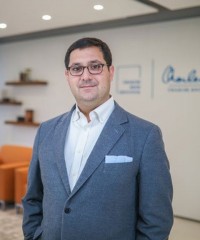
Jesse Blumenthal
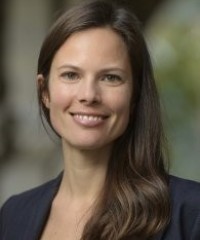
Kelly Born
Kelly Born is the Executive Director of Stanford’s Cyber Policy Center. The center’s research and teaching focuses on the governance of digital technology at the intersection of security, geopolitics and democracy. Born collaborates with the center’s program leaders to pioneer new lines of research, policy-oriented curriculum, and outreach to key decision-makers globally.
Prior to joining Stanford, Born helped to launch and lead The Madison Initiative at the William and Flora Hewlett Foundation, one of the largest philanthropic undertakings working to reduce polarization and improve U.S. democracy. There, she designed and implemented strategies focused on money in politics, electoral reform, civic engagement and digital disinformation.
Kelly earned a master’s degree in international policy from Stanford University.
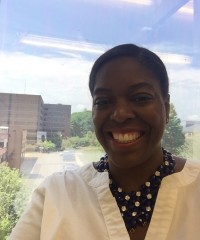
Jonelle Bradshaw de Hernandez
Jonelle Bradshaw de Hernandez is the Executive Director of Foundation Relations and researcher at The University of Texas at Austin. Dr. Bradshaw de Hernandez works closely with advancement and academic leadership to prioritize and execute fundraising programs and initiatives that attract significant foundation support. Dr. Bradshaw de Hernandez’ research interests include the intersection of science and technological innovations, risk perceptions, fundraising and job security in building a transformational U.S. workforce focused on social good.
Previously, she served as Senior Director of Corporate and Foundation Relations at Stony Brook University in New York. She graduated from Cornell University, College of Human Ecology, with a Bachelor of Science in Human Service Studies concentrating in Social Policy and Community Development. She received her Master of Arts in Organizational Psychology from Columbia University, Teachers College, an Advanced Certificate in Instructional Leadership at St. John’s University, and her Doctorate from Stony Brook University, College of Engineering and Applied Sciences in Technology, Policy and Innovation.

Catrina Bryant
Catrina Bryant joined the Arnold and Mabel Beckman Foundation in 2011 and is the Manager of Program Administration. In this role she oversees the Foundation's grant programs and annual Symposium. She received her BA in Social Ecology from UC Irvine in 1991. In 1996 she completed the UCI certificate in Environmental & Land Use Planning, followed by the UCI Certificate in Human Resources Management. In 2017 she received the designation of Senior Certified Professional from the Society of Human Resources (SHRM-SCP). Ms. Bryant is currently pursuing her MBA from Western Governors University.
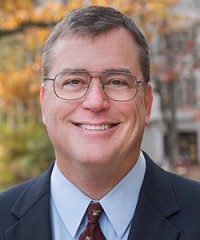
Fred Cate
Professor Cate specializes in information privacy and security law issues. He has testified before numerous congressional committees and speaks frequently before professional, industry, and government groups.
In addition to his appointment in the Law School and as Vice President for Research, he is an Adjunct Professor of Informatics and Computing at Indiana University. From 2003 to 2014, he served as the founding director of IU’s Center for Applied Cybersecurity Research, a National Center of Academic Excellence in Information Assurance Research and Information Assurance Education, where he is now a senior fellow.
Professor Cate currently chairs the National Academies’ study on Law Enforcement and Intelligence Access to Encrypted Content, and he is a member of the National Academies’ Forum on Cyber Resilience as well as many other government, industry, and not-for-profit advisory panels. He serves as a senior policy advisor to the Centre for Information Policy Leadership at Hunton & Williams LLP.
Previously, Professor Cate served as a member of the National Academies’ Committee on Technical and Privacy Dimensions of Information for Terrorism Prevention, counsel to the Department of Defense Technology and Privacy Advisory Committee, and a member of the National Security Agency’s Privacy and Civil Liberties Panel, the Federal Trade Commission's Advisory Committee on Online Access and Security, and Microsoft's Trustworthy Computing Academic Advisory Board, among many others. He chaired the International Telecommunication Union's High-Level Experts on Electronic Signatures and Certification Authorities.
The author of more than 150 articles and books, he served as the privacy editor for the Institute of Electrical and Electronic Engineers' Security & Privacy and is one of the founding editors of the Oxford University Press journal, International Data Privacy Law. He is the co-author of a forthcoming book from Oxford University Press, Bulk Collection: Systematic Government Access to Private-Sector Data.
Professor Cate attended Oxford University and received his J.D. and his A.B. with Honors and Distinction from Stanford University. A former Senator and President of the Phi Beta Kappa Society, he is a fellow of Phi Beta Kappa and the American Bar Foundation, and an elected member of the Council on Foreign Relations and the American Law Institute.
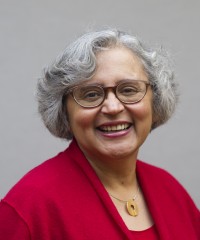
Cecilia Conrad
Cecilia A. Conrad is CEO of Lever for Change and a Managing Director at the John D. and Catherine T. MacArthur Foundation where she leads the MacArthur Fellows program and its 100&Change competition. Before joining the foundation in 2013, Conrad was Vice President for Academic Affairs and the Stedman Sumner Professor of Economics at Pomona College (2009-2012) and Interim Dean of the Faculty at Scripps College (2007-2009). Dr. Conrad is a member of the board of trustees of Bryn Mawr College, The Poetry Foundation, the National Academy of Social Insurance, IES Abroad, the Future Leaders Foundation, and the Sylvia Bozeman and Rhonda Hughes EDGE Foundation. She is a trustee emerita of Muhlenberg College. She received her B.A. degree from Wellesley College and her Ph.D. in economics from Stanford University. She is the recipient of National Economic Association’s 2018 Samuel V. Westerfield Award, the National Urban League’s 2008 Women of Power Award, and was 2005 CASE California Professor of the Year.

Sheetal Dhir
Sheetal Dhir is a senior strategist with over ten years of experience in strategic communications. A battle-tested campaigner and fixer, Sheetal’s expertise lies in her social justice acumen as well as her commanding skills within the crisis communications space.
A vice president in Spitfire’s New York City office, Sheetal’s interests center around racial justice, the climate crisis, and creating rapid response infrastructure and capability for her clients. Sheetal previously held the role of senior crisis campaigner at Amnesty International USA where she led all tactical and crisis response campaigns during the first two years of the Trump administration. Before AIUSA, Sheetal spent several years at ACLU National where she moved people to action on racial justice issues through the lenses of immigration reform, mass incarceration, and prisoner’s rights. In addition to this work, Sheetal has consulted for Center for American Progress, Families for Freedom, Give Directly, Open Society Foundation, and Vocativ.
Originally a broadcast political news producer, Sheetal has produced and launched shows for ABC News, Al Jazeera, Current TV, Fusion Networks, and WGBH/NPR.
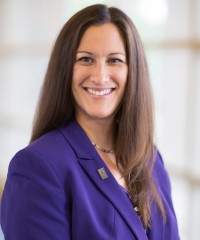
Julie Elzanati
Julie Elzanati began working at the University of Illinois in February 2017 as a Director in the Office of Foundation Relations. Previously, Julie was the Dean of Continuing Education at Heartland Community College (HCC) where she oversaw administration of a broad range of credit and noncredit programs. From 2011 to 2013, Julie was the Executive Director of the Illinois Green Economy Network (IGEN), and from 2010 to 2011, she was a Director of College Partnerships for IGEN. From 2006 to 2010, Julie served as a Coordinator of the Green Institute and Program Manager of Community Education at HCC. From 2003 to 2006, Julie was an Adjunct Faculty in Biology at HCC and also the Assistant Director, Membership Chair and Energy Coordinator at the Ecology Action Center in Normal. Julie holds a M.S. in Conservation Biology from Illinois State University (2002) and a B.A. in Anthropology from the University of Illinois at Urbana-Champaign (1992).
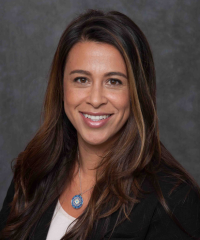
Ashley Garcia
Ashley Garcia is a Director on the Foundation Relations team at UC San Diego where she partners with faculty to align research with philanthropy. Her current focus is in the areas of high-risk basic scientific research and biomedical research with the potential to tackle national and global problems. Before her shift to academic research in 2016, Ashley worked at nonprofit organizations focused on behavioral health, education, children's environmental health, and communication leadership in Los Angeles. Ashley received a Master in Public Administration from the University of Southern California and a BA in International Development from UCLA.

Sam Gill
Sam Gill is senior vice president and chief program officer. In this role, he oversees all of Knight’s grantmaking programs — Community and National Initiatives, Journalism and Arts. He also oversees Learning and Impact, Knight’s research and assessment program. Sam joined the foundation in 2015. Previously, he served as vice president of Freedman Consulting, where he provided leadership for many of the firm’s projects, including strategic planning and evaluation, as well as campaign and initiative management. He has led or participated in projects for elected officials and candidates for office, Fortune 500 companies and many of America’s leading foundations. Gill earned a Bachelor of Arts with honors from the University of Chicago and a Master of Philosophy in politics from the University of Oxford, England, where he was a Rhodes Scholar. He serves on the board of the Phillip and Patricia Frost Museum of Science in Miami and was a member of the Commission on the Practice of Democratic Citizenship, a project of the American Academy of Arts and Sciences.
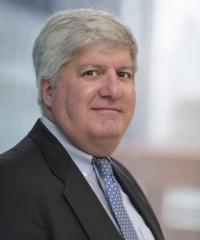
Tom Kalil
Tom Kalil is Chief Innovation Officer at Schmidt Futures. In this role, Tom leads initiatives to harness technology for societal challenges, improve science policy, and identify and pursue 21st century moonshots. Prior to Schmidt Futures, Tom served in the White House for two Presidents (Obama and Clinton), helping to design and launch national science and technology initiatives in areas such as nanotechnology, the BRAIN initiative, data science, materials by design, robotics, commercial space, high-speed networks, access to capital for startups, high-skill immigration, STEM education, learning technology, startup ecosystems, and the federal use of incentive prizes. From 2001 to 2008, Kalil was Special Assistant to the Chancellor for Science and Technology at UC Berkeley. He launched a program called Big Ideas@Berkeley, which provide grants to student-led teams committed to solving important problems at home and abroad. In 2007 and 2008, Kalil was the Chair of the Global Health Working Group for the Clinton Global Initiative, where he developed new public and private sector initiatives in areas such as maternal and child health, under-nutrition, and vaccines. Prior to joining the Clinton White House, Tom was a trade specialist at the Washington offices of Dewey Ballantine, where he represented the Semiconductor Industry Association on U.S.-Japan trade issues and technology policy. He also served as the principal staffer to Gordon Moore in his capacity as Chair of the SIA Technology Committee. Tom received a B.A. in political science and international economics from the University of Wisconsin at Madison, and completed graduate work at the Fletcher School of Law and Diplomacy.
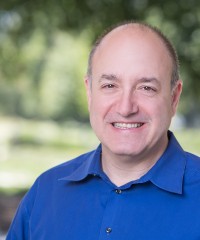
Larry Kramer
Larry Kramer has been President of the William and Flora Hewlett Foundation since 2012. Under his leadership, the foundation has maintained its commitment to areas of enduring concern, while adapting its approaches and strategies to meet changing circumstances and seize new opportunities. He has, at the same time, been instrumental in launching new efforts to respond to pressing and timely problems, such as challenges related to political polarization and cybersecurity.
Since joining the Hewlett Foundation, he has written and spoken about issues related to effective philanthropy, including the importance of collaboration among funders and the need to provide grantees with long-term support. He frequently lectures and writes about broad societal issues, from global climate change to the challenge of maintaining democratic government in the 21st century.
Before joining the foundation, Larry served from 2004 to 2012 as Richard E. Lang Professor of Law and Dean of Stanford Law School. During his tenure, he spearheaded significant educational reforms, pioneering a new model of multidisciplinary legal studies while enlarging the clinical education program and incorporating a public service ethos. His teaching and scholarly interests include American legal history, constitutional law, federalism, separation of powers, the federal courts, conflict of laws, and civil procedure.
At the start of his career, Larry served as law clerk to U.S. Court of Appeals Judge Henry J. Friendly of the Second Circuit and U.S. Supreme Court Justice William J. Brennan Jr. Following his clerkships, Larry served as professor of law at the University of Chicago and University of Michigan law schools. He joined the faculty of New York University School of Law in 1994, where he served as Associate Dean for Research and Academics and Russell D. Niles Professor of Law until leaving for Stanford in 2004. Before joining Stanford, he also served as a special consultant for Mayer Brown, LLP.
Larry is a fellow of the American Academy of Arts and Sciences and a member of the American Philosophical Society and the American Law Institute. He serves as a director on the boards of a number of nonprofit organizations, including the National Constitution Center, Independent Sector, and the ClimateWorks Foundation.
Larry received an A.B. in Psychology and Religious Studies from Brown University, graduating magna cum laude in 1980, and a J.D. from the University of Chicago Law School, magna cum laude, in 1984. He is the author of numerous articles and books, including “The People Themselves: Popular Constitutionalism and Judicial Review.”
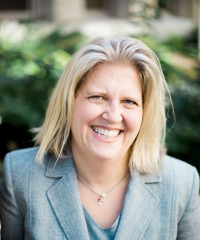
Jennifer Lawrence
Jen Lawrence leads the Foundation Relations team in the Office of the Vice President for Research at Indiana University (IU), serving as Senior Executive Director of Foundation Relations. Before joining IU, she served in a similar role at Rose-Hulman Institute of Technology, and prior to that worked in Foundation Relations and Communications at Northwestern University.
Earlier in her career, Lawrence worked as a communication strategist, helping corporations and organizations refine and optimize their institutional identities. She holds a master's degree in speech communication and a bachelor's degree in mass communication, both from Miami University in Oxford, Ohio. She completed coursework at the University of Iowa toward a doctorate in communication studies with a focus in technology, leaving ABD. In 2013, Lawrence earned a master of fine arts degree in fiction writing from Northwestern University. She has taught courses in grant writing, rhetoric and composition, creative writing, and public speaking.

Nicole Lindsay

Lindsey Lovel Heidrich
Lindsey works on the Criminal Justice team as a projects manager. She works closely with the Criminal Justice Chief of Staff to support the Criminal Justice team through various ways big and small, administratively and creatively. She previously work as the Grants Manager for Criminal Justice at Arnold Ventures.
Before joining Arnold Ventures, Lindsey was the Research Analyst and a Project Manager at CASES, Manhattan's largest direct service provider of alternative to incarceration, detention, and bail programs. Before discovering her calling to criminal justice reform, Lindsey was a bartender for over a decade and is still a sommelier and wine lover.
Lindsey holds a master's of public administration from Baruch College, CUNY and a bachelor’s in philosophy from Georgia State University.

Jennifer Martin
Ms. Martin leads a team of professionals focused on Foundation Relations and Strategic Initiatives for UC San Diego. She partners with faculty and University leadership as well as foundation and nonprofit partners to bridge cross-sector collaborations that propel research, science, health, and innovation to heightened levels of impact. Specific areas of expertise include: global health and development; the intersection of medicine and engineering; data science; climate science; as well as the human technology frontier. She also partners with the Vice Chancellor for Research to guide big idea generation and growth to address global grand challenges.
Prior to joining UC San Diego in 2007, Ms. Martin managed donor relations and community advisory boards for Scripps Health Foundation, and previously held a similar role at Franciscan Health System in her native Puget Sound region of Washington. She holds her master’s degree from the University of San Diego, School of Leadership and Education Sciences with a focus in nonprofit leadership, and a bachelor’s degree in marketing and communication.

John Matthews
John joined the Advancement team at UC San Diego in 2017 and holds the position of Associate Director of Foundation Relations, having also served as a major gift officer at Scripps Institution of Oceanography. In his current role, John holds a robust portfolio of national private foundations and works to support all areas of the UC San Diego campus, focusing on data science, engineering, human-centered design, and basic science research, as well as running a program for young and early-career investigators. Prior to joining UC San Diego, John served in multiple administrative roles at Nebraska-based education access nonprofits, and also conducted research as a technologist in a virology and oncology lab at Creighton University and the University of Nebraska Medical Center, respectively. John holds a B.S. in Microbiology from Creighton University and a Master of Public Administration from the University of Nebraska.

Shobita Parthasarathy
Shobita Parthasarathy is a professor of public policy. Her research focuses on the comparative and international politics and policy related to science and technology. She is interested in how to develop innovation, and innovation policy, to better achieve public interest and social justice goals. Much of her previous work has focused on the governance of emerging science and technology, particularly those that have uncertain environmental, social, ethical, political, and health implications. She is the author of multiple articles and two books: Building Genetic Medicine: Breast Cancer, Technology, and the Comparative Politics of Health Care (MIT Press 2007; paperback 2012); and Patent Politics: Life Forms, Markets, and the Public Interest in the United States and Europe (University of Chicago Press, 2017). Parthasarathy has participated in innovation policy discussions in both the U.S. and Europe; most notably, her work influenced the 2013 U.S. Supreme Court case challenging the patentability of human genes. Her new research project focuses on the political machineries that shape the development and decision-making related to technologies for the poor, with a focus on India. She received her undergraduate degree from the University of Chicago and master's and PhD from Cornell University.
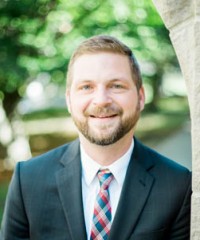
Cory Rutz
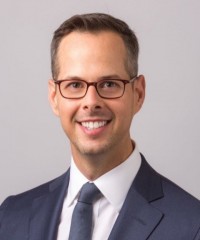
John Sands
John Sands is Director of Learning and Impact at the John S. and James Knight Foundation. He joined Knight Foundation in 2019, with a background is in higher education, and he brings experience in development and enrollment management from the University of Pennsylvania (Penn), where he drove initiatives around market research, strategic planning and marketing/communications. In Penn’s Office of Undergraduate Admissions, Sands developed and led the implementation of committee-based evaluation, an innovative student application review model that has since been adopted by dozens of colleges and universities nationwide. Following his time at Penn, Sands was chief of staff and special assistant to the president at the American Academy of Arts & Sciences. He has consulted to clients in higher education as well as to Knight Foundation. A native of east Tennessee, Sands studied music theory and composition at Vanderbilt University and holds a doctorate in the history and theory of architecture from the University of Pennsylvania. He lives in Philadelphia.
Amy Smith

Andreen Soley
Andreen Soley is project manager for public and private partnerships for New America's Public Interest Technology program. Soley joins New America after twenty years of experience working within higher education and the nonprofit sector. From 2001 to 2005, she served as the director of educational programs at the City University of New York’s JFK, Jr. Institute for Worker Education Program (IWE), overseeing its workforce development and career advancement initiatives to make higher education accessible to low-income workers. This mutually beneficial model saw human service agencies such as United Cerebral Palsy of New York City and Young Adult Institute agree to provide employees completing IWE’s credited certificate programs with financial incentives such as a one-time bonus or salary increase, promotions, and/or release time. After relocating to Los Angeles, Soley accepted a position as a researcher with Worker Education Resource Center, an organization established by the Service Employees International Union Local 721 to provide career path programs for over 22,000 Los Angeles County Department of Health Services workers in public hospitals, health centers, and community clinics. Soley assisted in the development of the plan to identify and provide workforce development career path programs to meet Los Angeles County’s labor needs. Most recently, she has been working with Mount Saint Mary’s University to develop a university-wide process which tracks monitors, and reports on the employment outcomes of its graduate alumni.
She has a master’s in media ecology from New York University and wants to help technologists transform the world for the better.
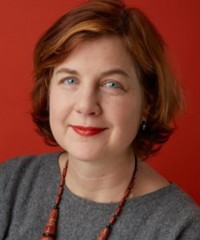
Jenny Toomey

Xiao-Wei Wang
Xiao-Wei joined the Packard Foundation in 2004. She manages the Packard Fellowships for Science and Engineering, a program established in 1988 to support the nation’s most promising early-career professors to pursue their science and engineering research. In her role, Xiao-Wei oversees the nomination, selection and award process, manages the annual Packard Fellows Meeting, and works closely with current and alumni Packard Fellows, as well as the Fellowship Advisory Panel. Prior to joining the Foundation, Xiao-Wei worked at the Council on Foundations, where she researched emerging issues in corporate philanthropy and developed educational programs for corporate grantmaking executives. She also served as a senior research associate at the Corporate Executive Board in Washington DC. Xiao-Wei is a graduate of The College of William and Mary and Stanford University. When not working with 500+ Packard Fellows, she can be found hiking, biking or chasing after her two young kids in the Bay area.
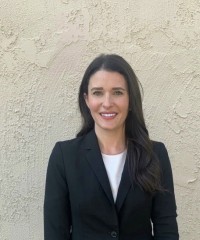
Elizabeth Weiss
Elizabeth comes to the Science Philanthropy Alliance having spent over a decade working in senior development positions securing tens of millions of dollars to support various basic science departments at academic institutions across the country. Most recently, Elizabeth worked as the Senior Director of Development for the Keck School of Medicine at the University of Southern California. In this role she participated in the multibillion-dollar Campaign for USC and was instrumental in increasing the philanthropic support for various basic science departments and institutes including the Eli and Edythe Broad Center for Regenerative Medicine and Stem Cell Biology at USC and the Zilkha Neurogenetic Institute. Prior to that role, Elizabeth provided key strategic and fundraising support to various departments within the Division of Life Sciences at the University of California, Los Angeles (UCLA), and at the Taglietela School of Engineering at the University of New Haven.
Elizabeth holds a Master of Public Administration from the University of New Haven, and a BA from the University of Connecticut.
Parastou Youssefi

Ana Zamora
Ana has served as the director of criminal justice reform at the Chan Zuckerberg Initiative (CZI) since March 2018. At CZI, Ana leads a cross-functional team working to redesign the criminal justice system with community health and safety at its core, rather than incarceration and punishment. Using advocacy, grantmaking, technology, and innovation, the team and grantee partners work to drive change and build opportunities for those impacted by the justice system.
Before making the move into the philanthropic sector, Ana worked on state level criminal justice policy reform at the American Civil Liberties Union for over a decade, ending her tenure there as the criminal justice policy director for the Northern California region. Using integrated advocacy, Ana advanced issues including sentencing reform, ending the death penalty, legislative and administrative reforms to reduce and remedy wrongful convictions, and greater prosecutorial accountability through voter education and engagement. Ana also served as Deputy Campaign Manager (Yes on 34 in 2012) and Campaign Manager (No on 66 in 2016) in two California ballot measure campaigns.
Ana started her career in the criminal justice sector with her first job out of college where she served as an administrative assistant at a law firm in California providing post-conviction legal services to individuals under sentence of death. She quickly learned about the inefficiencies and injustices of the criminal legal system and became committed to working for large scale change first through direct legal work, then policy work, and now as a funder of criminal justice reform advocacy in the U.S.
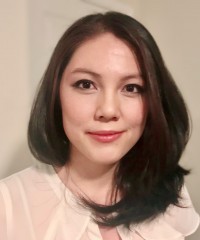
Li Zhou
Li Zhou is the Research Program Manager for TED’s The Audacious Project, where she oversees the curation of Audacious ideas, manages the project portfolio, and supports donor engagement. Prior to TED, Li served as a political appointee under the Obama Administration at the Departments of Commerce and Treasury, where she helped shape policies for the economy and developed public-private partnerships. With a range of experiences across the nonprofit, philanthropic, and government sectors, Li has created and scaled programs, promoted social policy reforms, and channeled funding for issues including economic inclusion, immigration, and gender and racial equity. Li earned her B.A. from Colgate University and her MBA from NYU Stern.







